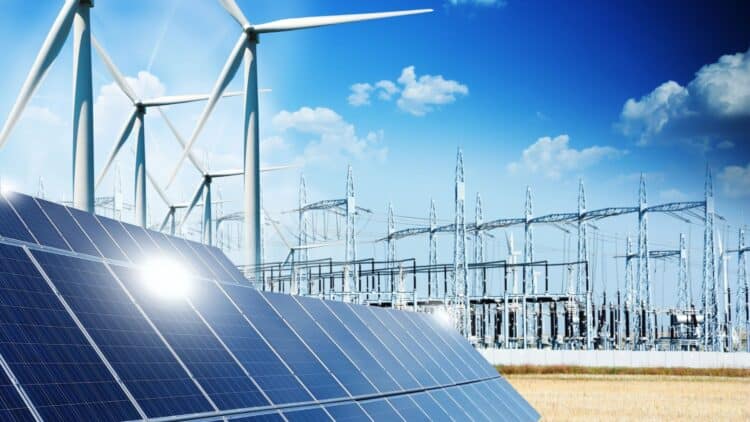The energy transition is increasingly gaining momentum in the Arab world. A new report from the Arab Investment Guarantee and Export Credit Corporation (Dhaman) revealed that 15 countries in the region have already attracted more than US$351 billion in foreign renewable energy projects between 2003 and 2024. With 360 projects and more than 83,000 jobs created, these figures place the Middle East and North Africa i a key position for the future of clean energy.
Growth in renewable energy investment boosts local economy and jobs
Incentives for investment in sustainable energy technologies are growing in the Arab region, currently one of the region’s fastest-growing markets. According to the report, five countries — Egypt, Morocco, the United Arab Emirates, Mauritania, and Jordan — accounted for nearly 70% of the projects and 82% of the jobs created. Together, these countries received US$291 billion, solidifying their position as regional energy innovation hubs.
The United Arab Emirates stands out for leading the way in investment volume among other countries, with US$88.5 billion invested in 57 projects, representing a quarter of the region’s total. The country alone created more than 16,000 jobs in the sector. When we look at the corporate landscape, Saudi Arabia’s ACWA Power led the way in terms of number of initiatives, with 20 projects, while Abu Dhabi-based Infinity Power led in terms of value, with US$34 billion in projects.
It’s also worth mentioning that there’s a clear trend toward collaboration among countries in the region. Saudi Arabis, the UAE, Bahrain, Jordan, and Egypt have participated in 90 joint projects totaling US$113 billion, demonstrating that the Arab energy transition is taking on a collaborative and collective nature, with focus on interconnected grids and regional efficiency.
Expansion of electricity generation and commerce reinforce the region’s important role
The report’s figures indicate that electricity generation in the 15 countries is expected to grow 4.2% in 2025, surpassing 1,500 terawatt-hours and reaching 1.754 TWh by 2030. However, production remains largely concentrated in the five main economies of Saudi Arabia, Egypt, the United Arab Emirates, Iraq, and Argelia. Together, these nations account for most three-quarters of the total.
Consumption also keeps pace with energy generation, with an estimated 3.5% increase next year. This estimate is due to countries with strong domestic demand an expected urban growth, which, to sustain itself, depends on advances in new energy sources and, in parallel, a robust trade in equipment and technology.
Growing electricity output and global trade boost the Arab world’s energy leadership
In 2024, foreign trade in electricity and equipment increased 8%, reaching US$39.2 billion. Exports grew 9%, reaching US$7.6 billion, while imports rose 7.8%, reaching US$31.5 billion. Saudi Arabia, the United Arab Emirates, Morocco, Iraq, and Qatar accounted for over 80% of these transactions.
Among the various international partners, Turkey stood out as the leading exporter of electricity (US$446 million), and the United States led in equipment supply (US$6.6 billion). On the other hand, when it came to imports, Libya was the largest buyer of electricity (US$59 million), while France dominated in equipment purchases, with US$593 million.
Sustainability, cooperation and future on the Arab energy map
This growing estimate of renewable energy production and demand in countries traditionally dependent on oil is indicative of how this sector is gaining momentum on a global scale. The investment in solar and wind energy, combined with regional cooperation, indicates that the Arab energy transition is becoming a state strategy.
The billion-dollar investment reveals that sustainability is also becoming an economic asset, not just a means to reduce carbo emission for the sake of nature preservation. With the Arab world’s financial capacity, if this trend continues, the region could become a benchmark for green innovation in a few years.


